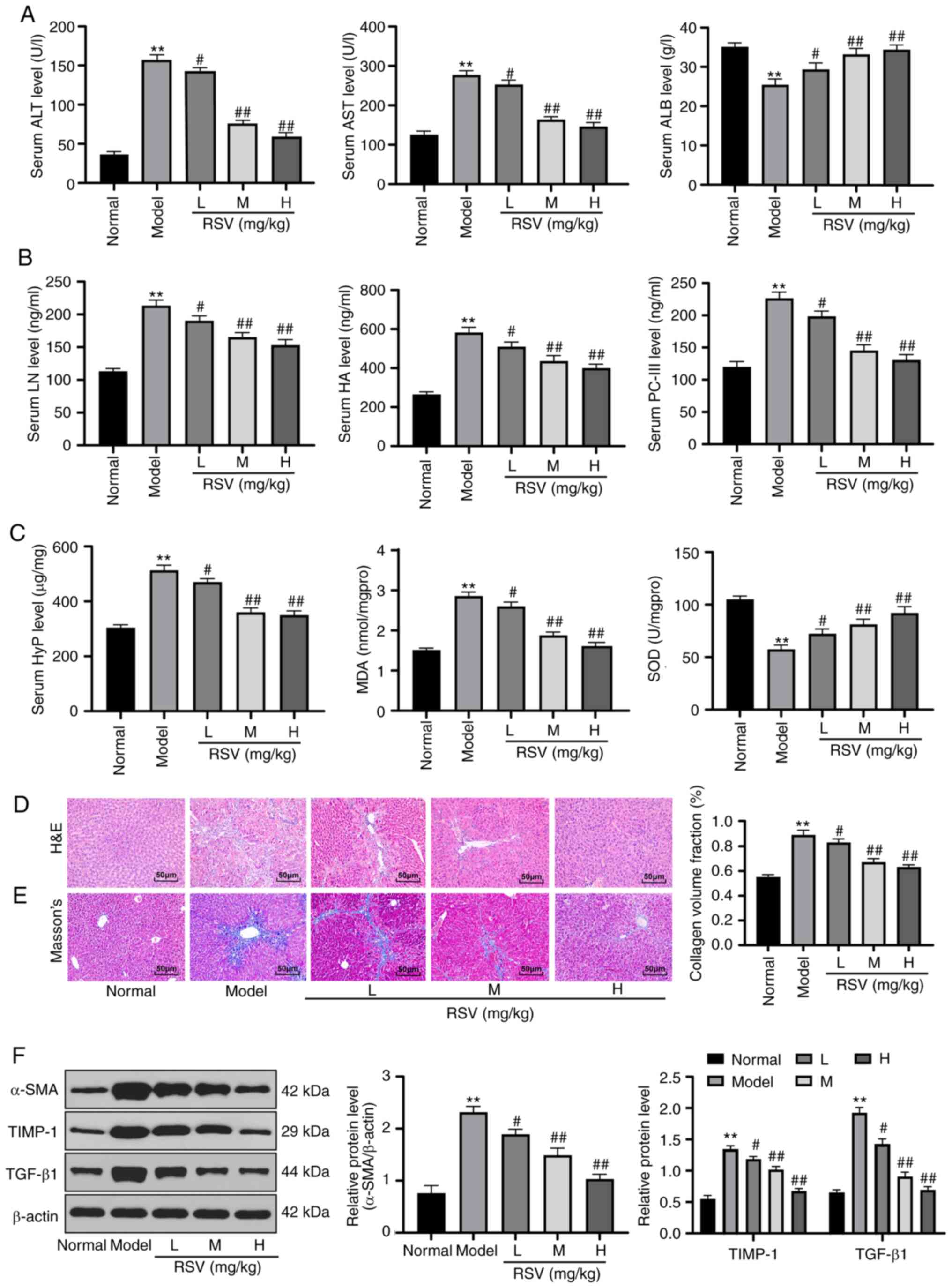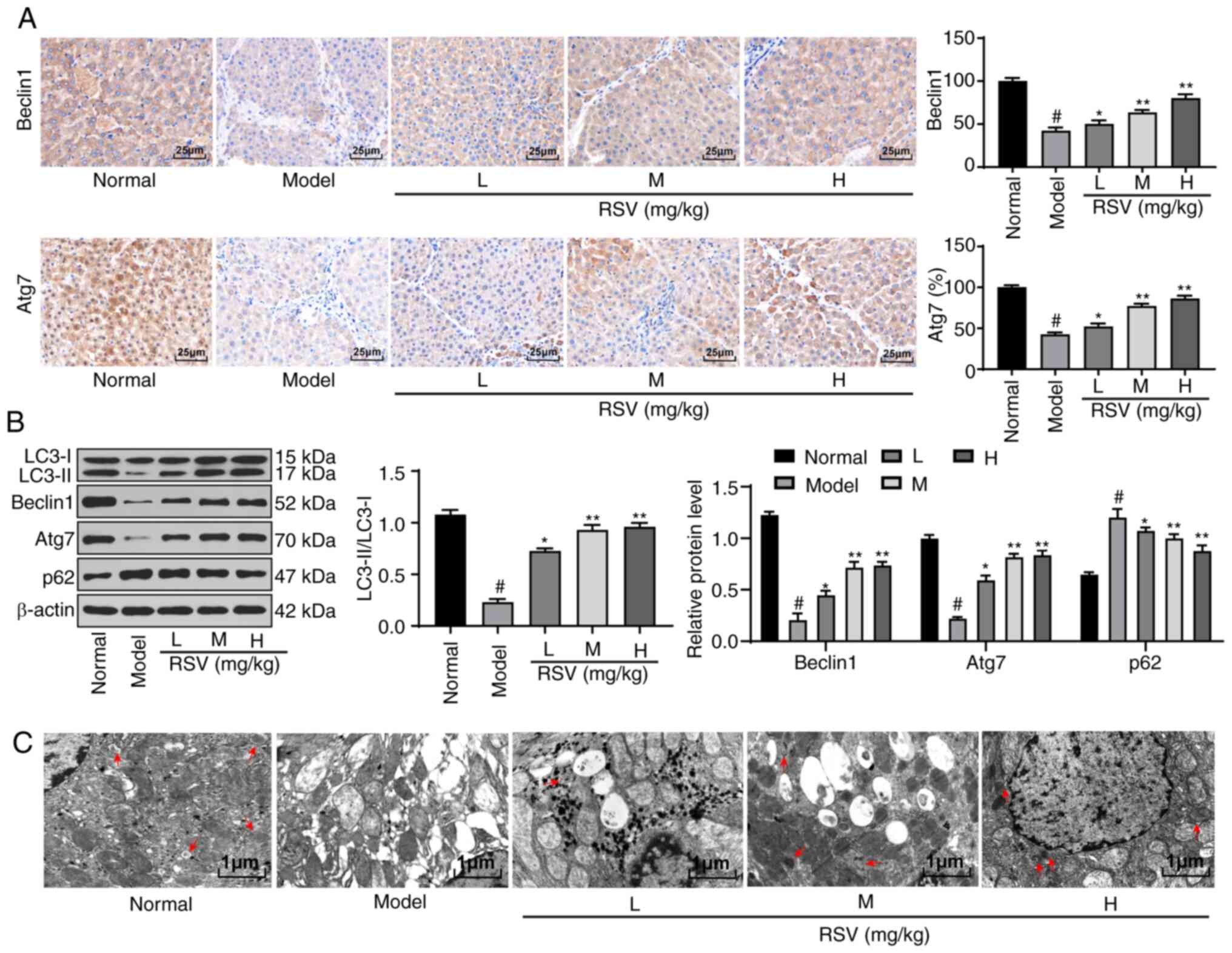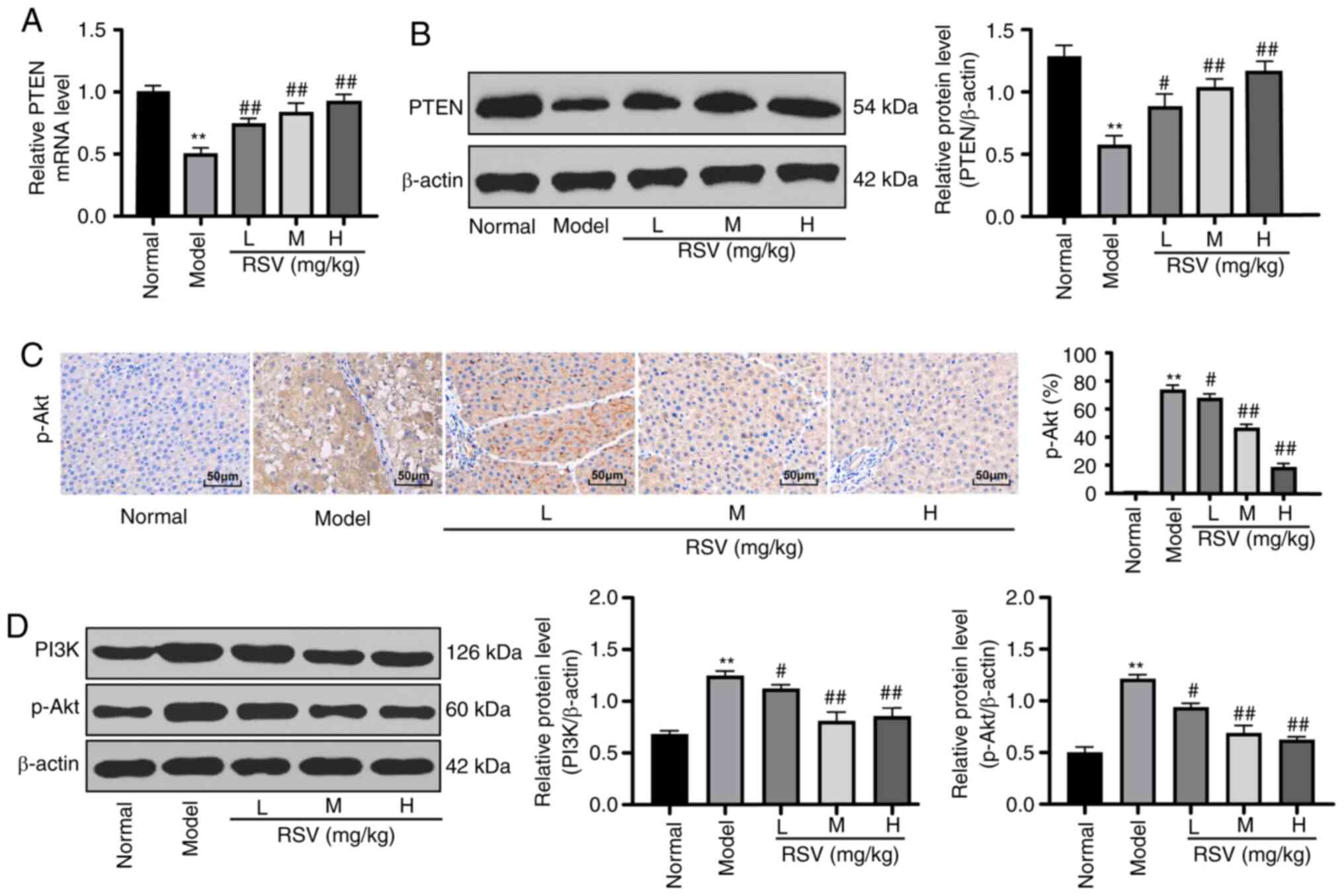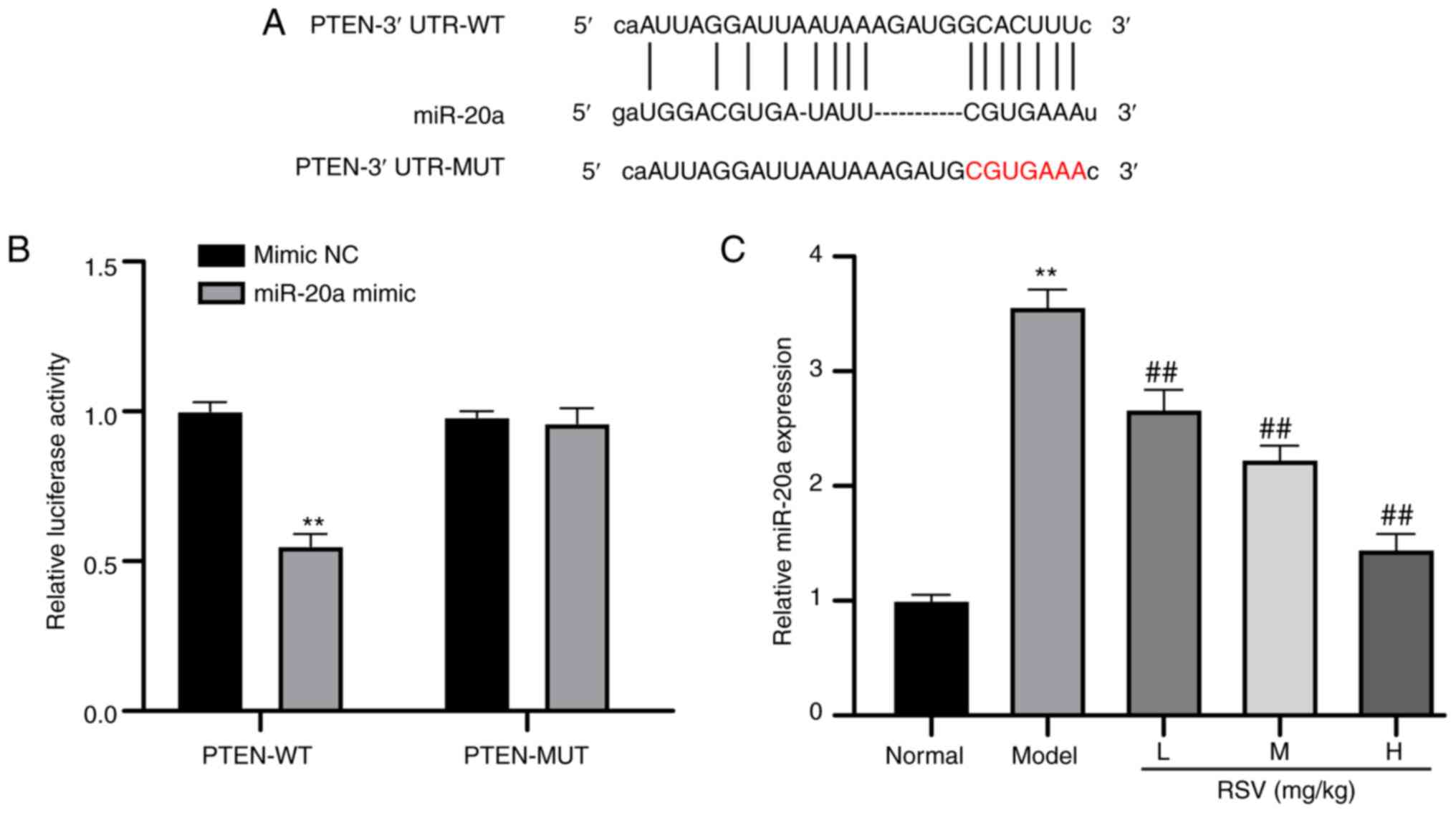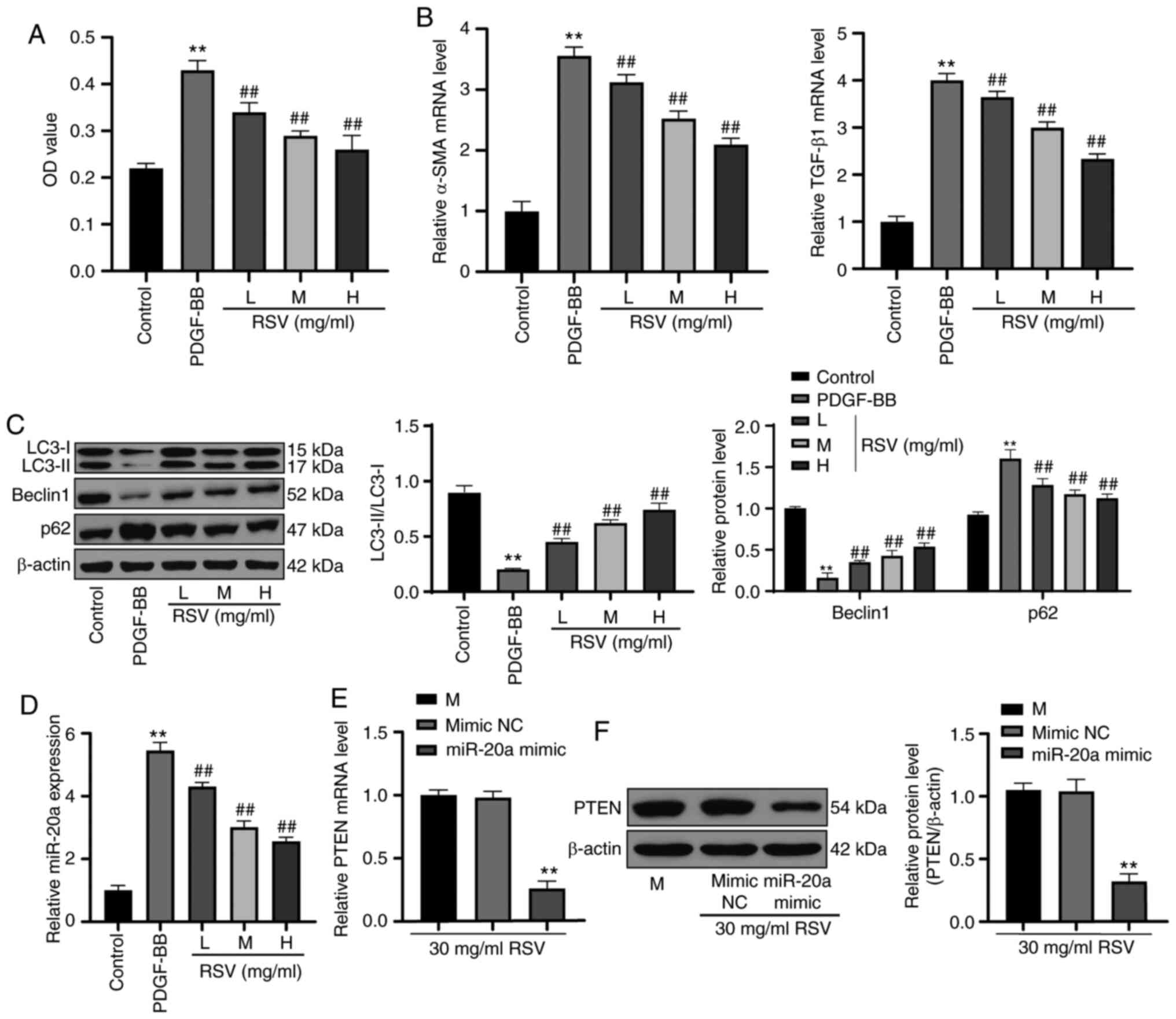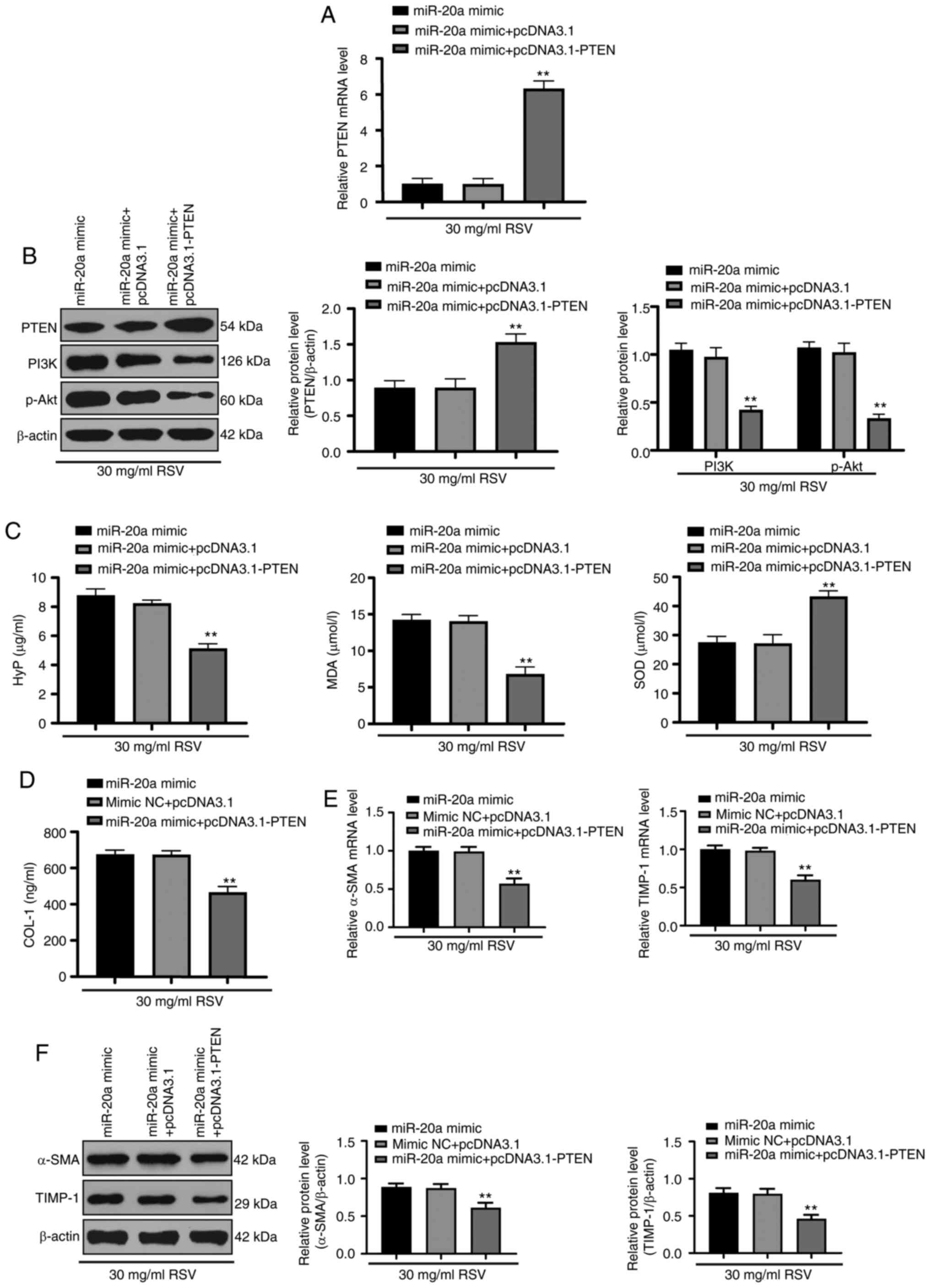|
1
|
Schuppan D, Ashfaq-Khan M, Yang AT and Kim
YO: Liver fibrosis: Direct antifibrotic agents and targeted
therapies. Matrix Biol. 68-69:435–451. 2018. View Article : Google Scholar : PubMed/NCBI
|
|
2
|
Zoubek ME, Trautwein C and Strnad P:
Reversal of liver fibrosis: From fiction to reality. Best Pract Res
Clin Gastroenterol. 31:129–141. 2017. View Article : Google Scholar : PubMed/NCBI
|
|
3
|
Campana L and Iredale JP: Regression of
liver fibrosis. Semin Liver Dis. 37:1–10. 2017. View Article : Google Scholar : PubMed/NCBI
|
|
4
|
Altamirano-Barrera A, Barranco-Fragoso B
and Mendez- Sanchez N: Management strategies for liver fibrosis.
Ann Hepatol. 16:48–56. 2017. View Article : Google Scholar : PubMed/NCBI
|
|
5
|
Poilil Surendran S, George Thomas R, Moon
MJ and Jeong YY: Nanoparticles for the treatment of liver fibrosis.
Int J Nanomedicine. 12:6997–7006. 2017. View Article : Google Scholar : PubMed/NCBI
|
|
6
|
Petitclerc L, Gilbert G, Nguyen BN and
Tang A: Liver fibrosis quantification by magnetic resonance
imaging. Top Magn Reson Imaging. 26:229–241. 2017. View Article : Google Scholar : PubMed/NCBI
|
|
7
|
Sun M and Kisseleva T: Reversibility of
liver fibrosis. Clin Res Hepatol Gastroenterol. 39(Suppl 1):
S60–S63. 2015. View Article : Google Scholar : PubMed/NCBI
|
|
8
|
Shi Y, Zhou J, Jiang B and Miao M:
Resveratrol and inflamma-tory bowel disease. Ann N Y Acad Sci.
1403:38–47. 2017. View Article : Google Scholar : PubMed/NCBI
|
|
9
|
Hessin AF, Hegazy RR, Hassan AA, Yassin NZ
and Kenawy SA: Resveratrol prevents liver fibrosis via two possible
pathways: Modulation of alpha fetoprotein transcriptional levels
and normalization of protein kinase C responses. Indian J
Pharmacol. 49:282–289. 2017. View Article : Google Scholar
|
|
10
|
Liu C, Liao JZ and Li PY: Traditional
Chinese herbal extracts inducing autophagy as a novel approach in
therapy of nonalcoholic fatty liver disease. World J Gastroenterol.
23:1964–1973. 2017. View Article : Google Scholar : PubMed/NCBI
|
|
11
|
Li W, Zhang T, Guo L and Huang L:
Regulation of PTEN expression by noncoding RNAs. J Exp Clin Cancer
Res. 37:2232018. View Article : Google Scholar : PubMed/NCBI
|
|
12
|
Liang H, Wang X, Si C, Duan Y, Chen B,
Liang H and Yang D: Downregulation of miR141 deactivates hepatic
stellate cells by targeting the PTEN/AKT/mTOR pathway. Int J Mol
Med. 46:406–414. 2020.PubMed/NCBI
|
|
13
|
Petersen DR, Saba LM, Sayin VI,
Papagiannakopoulos T, Schmidt EE, Merrill GF, Orlicky DJ and Shearn
CT: Elevated Nrf-2 responses are insufficient to mitigate protein
carbonylation in hepatospecific PTEN deletion mice. PLoS One.
13:e01981392018. View Article : Google Scholar : PubMed/NCBI
|
|
14
|
Dong Z, Li S, Wang X, Si L, Ma R, Bao L
and Bo A: lncRNA GAS5 restrains CCl4-induced hepatic
fibrosis by targeting miR-23a through the PTEN/PI3K/Akt signaling
pathway. Am J Physiol Gastrointest Liver Physiol. 316:G539–G550.
2019. View Article : Google Scholar
|
|
15
|
Zhang DQ, Sun P, Jin Q, Li X, Zhang Y,
Zhang YJ, Wu YL, Nan JX and Lian LH: Resveratrol regulates
activated hepatic stellate cells by modulating NF-κB and the
PI3K/Akt signaling pathway. J Food Sci. 81:H240–H245. 2016.
View Article : Google Scholar
|
|
16
|
Chai R, Fu H, Zheng Z, Liu T, Ji S and Li
G: Resveratrol inhibits proliferation and migration through SIRT1
mediated posttranslational modification of PI3K/AKT signaling in
hepatocellular carcinoma cells. Mol Med Rep. 16:8037–8044. 2017.
View Article : Google Scholar : PubMed/NCBI
|
|
17
|
Zhu Q, Luo M, Zhou C, Chen Z, Huang W,
Huang J, Zhao S and Yu X: Effect of danusertib on cell cycle,
apoptosis and autophagy of hepatocellular carcinoma HepG2 cells in
vitro. Nan Fang Yi Ke Da Xue Xue Bao. 38:1476–1484. 2018.In
Chinese.
|
|
18
|
Shrivastava S, Petrone J, Steele R, Lauer
GM, Di Bisceglie AM and Ray RB: Up-regulation of circulating
miR-20a is correlated with hepatitis C virus-mediated liver disease
progression. Hepatology. 58:863–871. 2013. View Article : Google Scholar : PubMed/NCBI
|
|
19
|
Zhang Y, Zheng L, Ding Y, Li Q, Wang R,
Liu T, Sun Q, Yang H, Peng S, Wang W and Chen L: MiR-20a induces
cell radiore-sistance by activating the PTEN/PI3K/Akt signaling
pathway in hepatocellular carcinoma. Int J Radiat Oncol Biol Phys.
92:1132–1140. 2015. View Article : Google Scholar : PubMed/NCBI
|
|
20
|
Dhar S, Kumar A, Rimando AM, Zhang X and
Levenson AS: Resveratrol and pterostilbene epigenetically restore
PTEN expression by targeting oncomiRs of the miR-17 family in
pros-tate cancer. Oncotarget. 6:27214–27226. 2015. View Article : Google Scholar : PubMed/NCBI
|
|
21
|
Huang W, Li G, Qiu J, Gonzalez P and
Challa P: Protective effects of resveratrol in experimental retinal
detachment. PLoS One. 8:e757352013. View Article : Google Scholar : PubMed/NCBI
|
|
22
|
Saha L and Chakrabarti A: Understanding
the anti-kindling role and its mechanism of Resveratrol in
Pentylenetetrazole induced-kindling in a rat model. Pharmacol
Biochem Behav. 120:57–64. 2014. View Article : Google Scholar : PubMed/NCBI
|
|
23
|
Zhan YY, Liang BQ, Li XY, Gu EM, Dai DP,
Cai JP and Hu GX: The effect of resveratrol on pharmacokinetics of
aripiprazole in vivo and in vitro. Xenobiotica. 46:439–444. 2016.
View Article : Google Scholar
|
|
24
|
Zhang Y, Dong R, Yang Q, Zhang L, Li J and
Zhao H: Resveratrol upregulates the gene and protein expressions of
N-methyl-D-aspartate receptor 1 and protein kinase C in the
hippocampus in Alzheimer's disease rats. Wei Sheng Yan Jiu.
48:269–278. 2019.In Chinese. PubMed/NCBI
|
|
25
|
Zatroch KK, Knight CG, Reimer JN and Pang
DS: Refinement of intraperitoneal injection of sodium pentobarbital
for euthanasia in laboratory rats (Rattus norvegicus). BMC Vet Res.
13:602017. View Article : Google Scholar : PubMed/NCBI
|
|
26
|
Livak KJ and Schmittgen TD: Analysis of
relative gene expression data using real-time quantitative PCR and
the 2(-Delta Delta C(T)) method. Methods. 25:402–408. 2001.
View Article : Google Scholar
|
|
27
|
Brunt EM: Grading and staging the
histopathological lesions of chronic hepatitis: The Knodell
histology activity index and beyond. Hepatology. 31:241–246. 2000.
View Article : Google Scholar
|
|
28
|
Zhang XW, Mi S, Li Z, Zhou JC, Xie J, Hua
F, Li K, Cui B, Lv XX, Yu JJ and Hu ZW: Antagonism of
Interleukin-17A ameliorates experimental hepatic fibrosis by
restoring the IL-10/STAT3-suppressed autophagy in hepatocytes.
Oncotarget. 8:9922–9934. 2017. View Article : Google Scholar : PubMed/NCBI
|
|
29
|
Zou H, Wang T, Yuan J, Sun J, Yuan Y, Gu
J, Liu X, Bian J and Liu Z: Cadmium-induced cytotoxicity in mouse
liver cells is associated with the disruption of autophagic flux
via inhibiting the fusion of autophagosomes and lysosomes. Toxicol
Lett. 321:32–43. 2020. View Article : Google Scholar
|
|
30
|
Niu X, Fu N, Du J, Wang R, Wang Y, Zhao S,
Du H, Wang B, Zhang Y, Sun D and Nan Y: MiR-1273g-3p modulates
activation and apoptosis of hepatic stellate cells by directly
targeting PTEN in HCV-related liver fibrosis. FEBS Lett.
590:2709–2724. 2016. View Article : Google Scholar : PubMed/NCBI
|
|
31
|
Cheng Y, Tian Y, Xia J, Wu X, Yang Y, Li
X, Huang C, Meng X, Ma T and Li J: The role of PTEN in regulation
of hepatic macro-phages activation and function in progression and
reversal of liver fibrosis. Toxicol Appl Pharmacol. 317:51–62.
2017. View Article : Google Scholar : PubMed/NCBI
|
|
32
|
Appourchaux K, Dokmak S, Resche-Rigon M,
Treton X, Lapalus M, Gattolliat CH, Porchet E, Martinot-Peignoux M,
Boyer N, Vidaud M, et al: MicroRNA-based diagnostic tools for
advanced fibrosis and cirrhosis in patients with chronic hepatitis
B and C. Sci Rep. 6:349352016. View Article : Google Scholar : PubMed/NCBI
|
|
33
|
Bae M, Park YK and Lee JY: Food components
with antifibrotic activity and implications in prevention of liver
disease. J Nutr Biochem. 55:1–11. 2018. View Article : Google Scholar
|
|
34
|
Abu-Amero KK, Kondkar AA and Chalam KV:
Resveratrol and ophthalmic diseases. Nutrients. 8:2002016.
View Article : Google Scholar : PubMed/NCBI
|
|
35
|
Faghihzadeh F, Hekmatdoost A and Adibi P:
Resveratrol and liver: A systematic review. J Res Med Sci.
20:797–810. 2015. View Article : Google Scholar : PubMed/NCBI
|
|
36
|
Tang L, Yang F, Fang Z and Hu C:
Resveratrol ameliorates alcoholic fatty liver by inducing
autophagy. Am J Chin Med. 44:1207–1220. 2016. View Article : Google Scholar : PubMed/NCBI
|
|
37
|
Zhao X, Li R, Liu Y, Zhang X, Zhang M,
Zeng Z, Wu L, Gao X, Lan T and Wang Y: Polydatin protects against
carbon tetrachloride-induced liver fibrosis in mice. Arch Biochem
Biophys. 629:1–7. 2017. View Article : Google Scholar : PubMed/NCBI
|
|
38
|
Ravanan P, Srikumar IF and Talwar P:
Autophagy: The spotlight for cellular stress responses. Life Sci.
188:53–67. 2017. View Article : Google Scholar : PubMed/NCBI
|
|
39
|
Park D, Jeong H, Lee MN, Koh A, Kwon O,
Yang YR, Noh J, Suh PG, Park H and Ryu SH: Resveratrol induces
autophagy by directly inhibiting mTOR through ATP competition. Sci
Rep. 6:217722016. View Article : Google Scholar : PubMed/NCBI
|
|
40
|
Ge MX, He HW, Shao RG and Liu H: Recent
progression in the utilization of autophagy-regulating nature
compound as anti-liver fibrosis agents. J Asian Nat Prod Res.
19:109–113. 2017. View Article : Google Scholar : PubMed/NCBI
|
|
41
|
Hopkins BD, Hodakoski C, Barrows D, Mense
SM and Parsons RE: PTEN function: The long and the short of it.
Trends Biochem Sci. 39:183–190. 2014. View Article : Google Scholar : PubMed/NCBI
|
|
42
|
He L, Gubbins J, Peng Z, Medina V, Fei F,
Asahina K, Wang J, Kahn M, Rountree CB and Stiles BL: Activation of
hepatic stellate cell in Pten null liver injury model. Fibrogenesis
Tissue Repair. 9:82016. View Article : Google Scholar : PubMed/NCBI
|
|
43
|
Chen Q, Duan X, Fan H, Xu M, Tang Q, Zhang
L, Shou Z, Liu X, Zuo D, Yang J, et al: Oxymatrine protects against
DSS-induced colitis via inhibiting the PI3K/AKT signaling pathway.
Int Immunopharmacol. 53:149–157. 2017. View Article : Google Scholar : PubMed/NCBI
|
|
44
|
Matsuda S, Kobayashi M and Kitagishi Y:
Roles for PI3K/AKT/PTEN pathway in cell signaling of nonalcoholic
fatty liver disease. ISRN Endocrinol. 2013:4724322013. View Article : Google Scholar : PubMed/NCBI
|
|
45
|
Tsai CY, Wu JCC, Fang C and Chang AYW:
PTEN, a negative regulator of PI3K/Akt signaling, sustains brain
stem cardiovascular regulation during mevinphos intoxication.
Neuropharmacology. 123:175–185. 2017. View Article : Google Scholar : PubMed/NCBI
|
|
46
|
Babu KR and Muckenthaler MU: MiR-20a
regulates expression of the iron exporter ferroportin in lung
cancer. J Mol Med (Berl). 94:347–359. 2016. View Article : Google Scholar
|
|
47
|
Yuan J, Su Z, Gu W, Shen X, Zhao Q, Shi L,
Jin C, Wang X, Cong H and Ju S: MiR-19b and miR-20a suppress
apoptosis, promote proliferation and induce tumorigenicity of
multiple myeloma cells by targeting PTEN. Cancer Biomark.
24:279–289. 2019. View Article : Google Scholar : PubMed/NCBI
|















